If you’re scheduled for court
All court proceedings, except trials, are currently being held virtually, by telephone or by video conference through the online platform MS Teams. Even though you may be attending court virtually, you're still expected to follow courtroom etiquette. This means that during your court proceeding, you're expected to dress appropriately (if you are attending by video), and you're not allowed to smoke or vape, or to eat or to drink any liquids other than water.
If you're calling into court through telephone conference or MS Teams, make sure to mute yourself while waiting for your court matter to be dealt with.
The Provincial Court website has a guide to video and telephone conferences. The court links for calling in to attend court are the same as for regular list days. If you're unsure of the call-in information, you can contact the court registry in advance of your court date to ask for it. See the Provincial Court website to find contact information for each court registry.
Child protection trials
At this time, all child protection trials are taking place in person at the designated courthouse (unless you're told differently by the court). Arrive early at the courthouse on your trial day. All people entering the courthouse will be screened for Covid-19 symptoms, so there may be a line up. Once you're in the courthouse, a sheriff will tell you where to wait for your trial. Limited numbers of people are allowed in court rooms, so follow the sheriff's directions and wait in the approved areas.
If your child has been removed and you have a date for a court hearing
If your child has been removed, your matter will be scheduled to appear in court within 7 days of the removal. This first court appearance, called a presentation hearing, will go ahead at the scheduled time and day (or on the court list day) by phone or by MS Teams. Call-in information for each list day is the same for each courthouse. If you have the call-in information and your matter is going to proceed on another day, the call-in information will be the same (unless court staff tell you otherwise).
If you aren’t sure what type of court appearance you have
Contact your social worker or your lawyer to check for any upcoming court dates. It’s important to not miss your court hearing. If you don’t have access to a telephone, talk to your social worker or lawyer to find a solution. In some courthouses, court rooms are open to people to attend in person; although it's recommended that you call in or attend by MS Teams.
If you need help with your case
No matter which stage you’re at in the child protection process, you can get help. If there's a Parents Legal Centre in your community, call them to get help by phone. These centres have free lawyers and advocates to help parents deal with a social worker's concerns about their children's safety. Or call the Legal Aid BC Call Centre for where to find legal aid services in your community.


